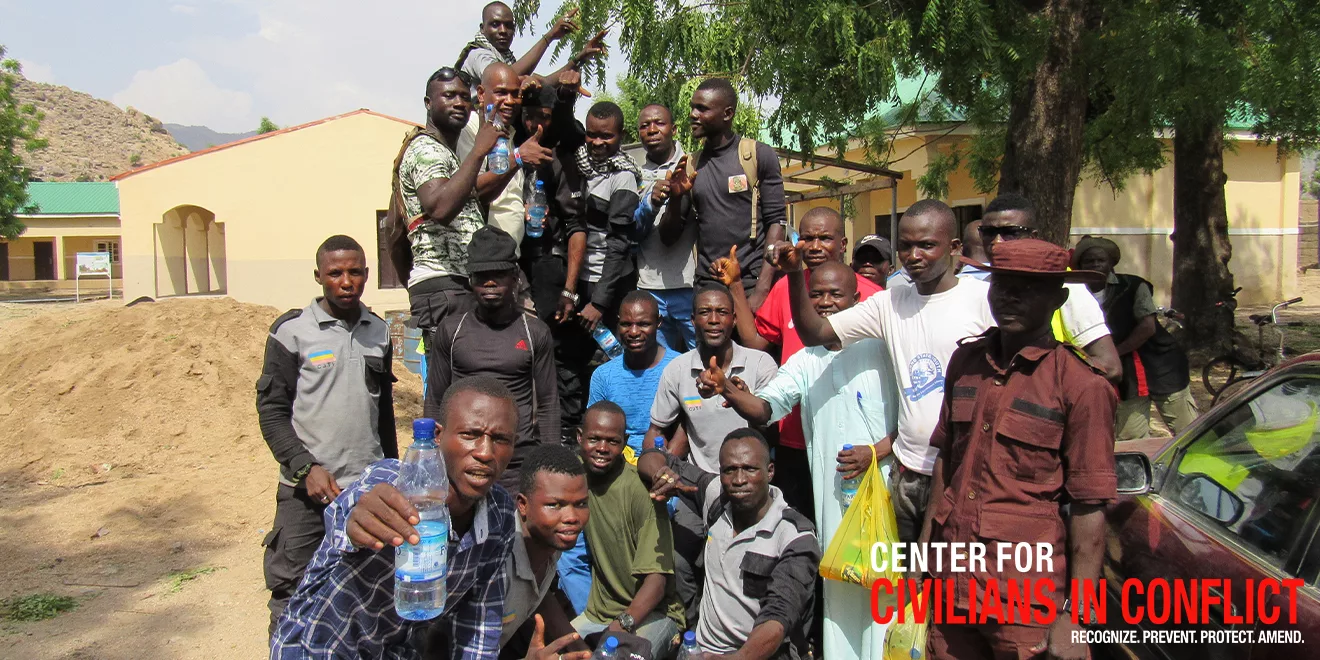Senator Iroegbu
The Country Director of Center for Civilians in Conflict (CIVIC), Dr. Benson Olugbuo, emphasized the urgent need for the Federal Government and relevant stakeholders to escalate their efforts in safeguarding civilians and mitigating harm in conflict-ridden areas of Nigeria.
Olugbuo made this call on Wednesday during a recent project close-out event and webinar titled “Advancing the Protection of Civilians (POC), Civilian Harm Mitigation (CHM), and Stabilization of North East Nigeria.” The project, financed by the European Union and executed by CIVIC Nigeria, aims to enhance POC policies, practices, and programs while strengthening civilian protection and resilience in the region.
“Nigeria’s unique circumstances have led to conflicts spanning across the nation. While CIVIC cannot be present in all 36 states, we actively collaborate with agencies like the National Human Rights Commission (NHRC) and provide training to military and security institutions,” Olugbuo noted.
“Although the primary responsibility for protecting civilians’ rests with the government, Civil Society Organizations (CSOs) like ours will continue supporting these efforts,” he stressed.
Mr. Francesco Carboni, the European Union Representative, underlined the importance of safeguarding civilians while ensuring their security. He commended CIVIC and its partners, highlighting the significant role CSOs play in EU’s peace-building initiatives.
“We believe in empowering people to determine their own destiny, power, and voice. CIVIC’s multi-country projects in East Africa, including Somalia, Kenya, and Uganda, have been instrumental. We look forward to learning from their expertise,” Carboni stated.
He also expressed the EU’s positive outlook on the project, expressing curiosity about lessons learned, success stories, and areas for improvement.
Reflecting on the project’s achievements and lessons learned, CIVIC Project Manager Ms. Saratu Pindar shared, “We identified 135 protection risks and successfully addressed 100 of these concerns across seven Local Government Areas (LGAs). We also established the Civilian Casualty Tracking Analysis and Response Cell (CCTARC) Desk Office to track civilian casualties, enhancing the military’s capability in protecting civilians.”
“Furthermore, we established 17 dialogue platforms in the LGAs to facilitate civilian access to key stakeholders, including the military, police, NSCDC, and LGA chairmen. We provided training to 374 Civilian Joint Task Force members, Hunters, and Vigilantes in Civilian Protection and Harm Mitigation. Additionally, we conducted 14 self-protection workshops for 350 Community Protection Committee Members,” she added.
Addressing the project’s lessons, Mr. Mujidand Sitdang, CIVIC Team Lead, stressed the importance of engaging a wide range of stakeholders, including security forces, communities, and government officials. He highlighted the value of training for both security forces and civilian groups in improving protection outcomes.
Sitdang noted, “Empowering local communities in their own protection efforts leads to sustainable and effective protection measures. Leveraging multimedia campaigns and radio programs effectively raises awareness and educates civilians about protection issues.”
He also emphasized the need to secure renewed funding for continued engagement.
Salaudeen Hashim, representing Civil Society Organizations (CSOs) in Abuja, spoke about multi-stakeholder engagements, particularly with policymakers and security institutions to enhance Protection of Civilians (POC) and Civilian Harm Mitigation (CHM) through relevant laws and policies.
Hashim mentioned their efforts in engaging with legislative drafters, even under challenging funding circumstances, with a focus on regions such as the South East, South-South, and within the military bases across the country.
He highlighted their work in institutionalizing civilian protection within the curriculum of military institutions, not just for counter-terrorism operations but also for emerging security challenges. Hashim revealed the transition of legal desks from military barracks into standalone offices.
Bulus Bulama, Chairperson of the Network of CSOs in Borno State, expressed gratitude for the impact of the Protection of Civilians and Civilian Harm Mitigation program, particularly in influencing laws and policies. He noted the current context in Borno State, where armed groups are surrendering, requiring comprehensive training and rehabilitation for reintegration into communities.
The “Advancing the Protection of Civilians and Stabilization of North East Nigeria” project played a pivotal role in increasing government engagement through the participation of the Nigerian Armed Forces, the Nigeria Police Force, Civil Society Organizations (CSOs), community leaders, and other key stakeholders.
The primary objective of the project was to bolster civilian protection and resilience in Northeast Nigeria, achieved through improvements in Protection of Civilians (PoC) policies, practices, and programs. It remains a critical force in promoting the well-being of civilians affected by the conflict in North East Nigeria.

